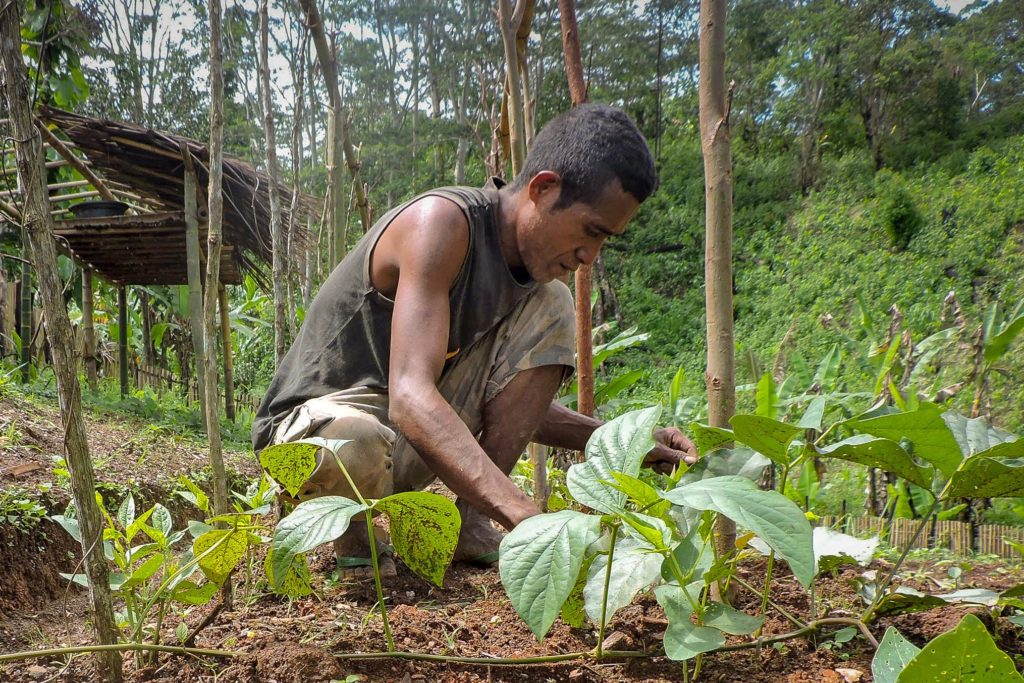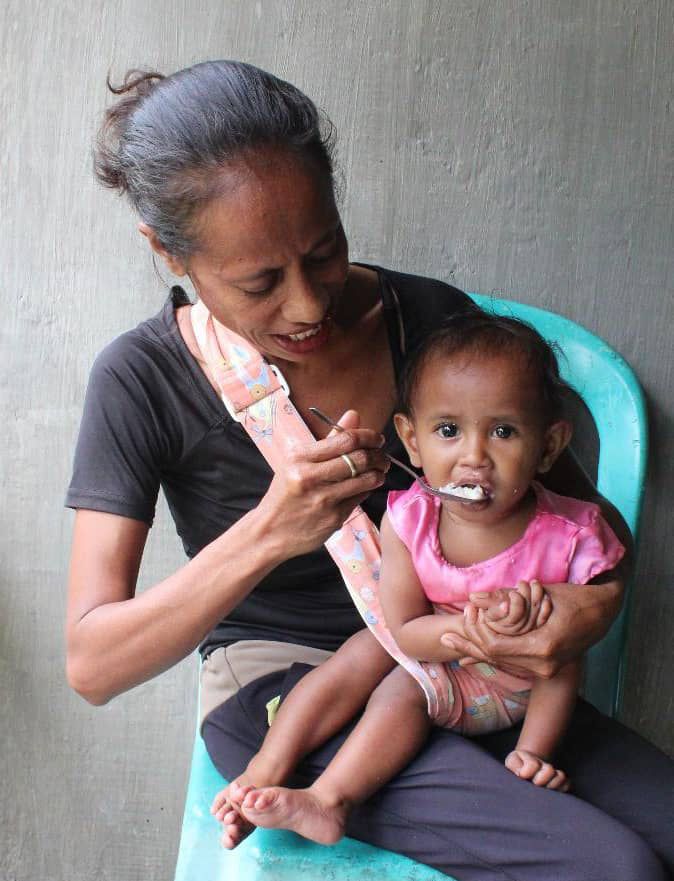Timor-Leste Liquica
$46,644 needed of $150,600

Implementing Organization
Church World Service (CWS)
Program Summary
Timor-Leste has one of the highest rates of malnutrition in the world, with 46% of children under five suffering from chronic malnutrition/stunting. Many subsistence households experience annual food shortages, largely due to poor agricultural productivity and insufficient outputs.
This program is working to improve child nutrition and the overall family food security of poor and vulnerable farmer families in the District of Liquica. The program includes the following activities:
- Training farmers and their households on nutritious food production, processing, and storage of maize;
- Training farmer groups in vegetable production and processing;
- Improved agricultural techniques;
- Access to irrigation resources
- Supporting farmer groups to market and add value to their products;
- Setting up and/or supporting cooking classes where women support women to learn about nutritious cooking and share menus and recipes as well as their experiences and challenges.
Deolindo's Story - Timor-Leste Liquica Program
Evaristo's Story - Timor-Leste Liquica Program
Martinha's Story - Timor-Leste Liquiçá Program
Success Stories

Demystifying Nutritious Food
Agustina is elated to know that cooking nutritious food is within reach of everyone, not just the wealthy. She attended a cooking demonstration given by Church World Service, local partner Fundasaun Sosial Naroman (FUSONA), and the area’s health office. The purpose was to show participants that good nutrition is simply a matter of knowing how to cook, combine and serve locally available foods, and to encourage them to try these practices at home.
Agustina and her classmates thought that wholesome food required expensive ingredients and equipment and involved a lot of complex activities. Like many other mothers, she has mostly served only rice porridge to her children aged six months to two years without incorporating any other protein or vegetables. Full tummies didn’t translate into healthy babies, due to the lack of calories and dietary diversity, so she didn’t need a lot of convincing to attend the class.
She, her husband and their four children have participated in other aspects of improved farming promoted by the program, so they have vegetables, meat and eggs to eat. She was impressed that, in her words, “All you need to do is cook them together and feed them to the children to improve their health.”
She learned a variety of ways to mix rice porridge with vegetables like cooked pumpkin, water spinach, watercress, tomato, or carrot. Each of these vegetables can be used separately or together, and if she didn’t have those, any other vegetables would do. Adding eggs for protein is easy enough for her and other attendees to achieve, and if they had beef floss (dried shredded beef) or chicken, or any other meat, those could also be used as well. Once the concept was clear, they realized the possibilities were endless, and they could be flexible in their approach depending on what they had on hand.
The cooking demonstration demystified the concept of “nutritious cooking” for the attendees, showing that anyone can do it by making use of what they grow in their home gardens and no expensive ingredients needed to be purchased. This activity gave mothers insight on nutrition and child health and making use of their agricultural production. It also served as a reminder of the importance of handwashing and sanitation. Agustina promised herself that, upon returning home, she would practice the menus she learned during the cooking demonstration.
Timor-Leste Liquiçá Program
Led by Church World Service and Local Partner Fundasaun Sosial Naroman (FUSONA)
